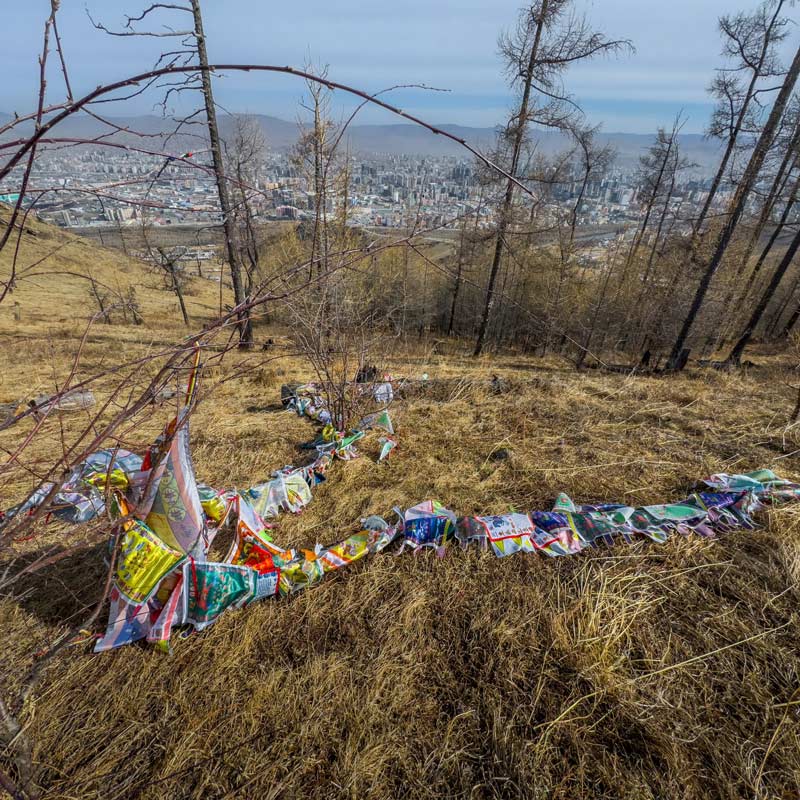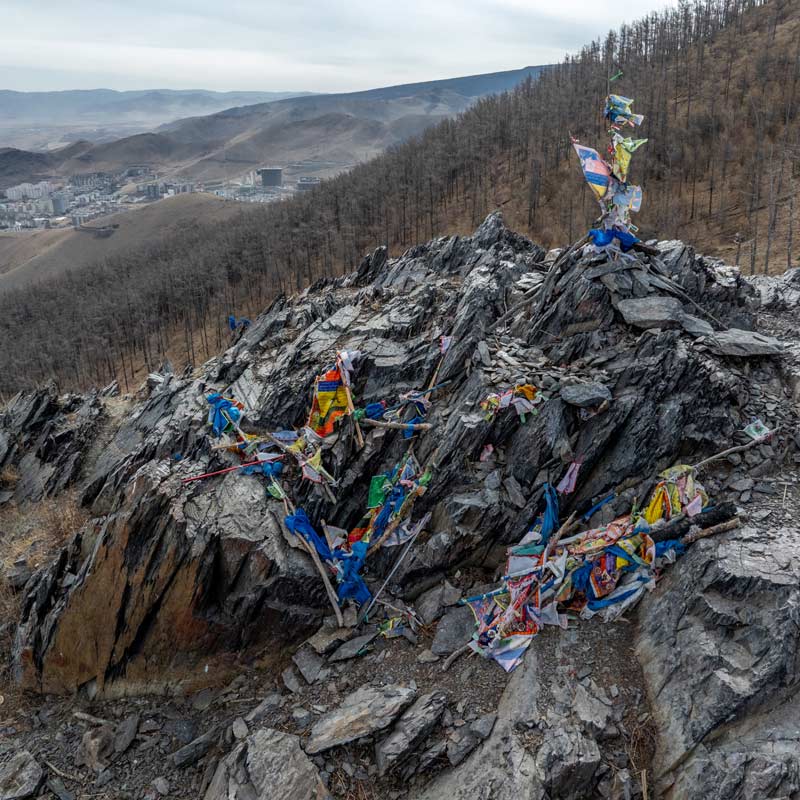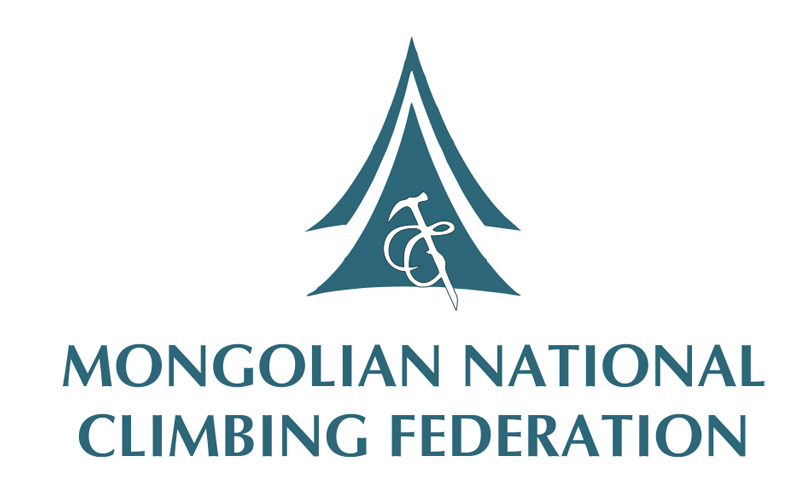Safeguarding both cultural heritage and ecological sustainability
PROJECT TITLE
Clean Ovoo
NAME OF ORGANISATION
Ulaanbaatar Hiking Club
Snapshot
While traditionally spiritual in nature, ovoos – sacred cairns built from stacked stones, wooden branches and brightly colored khadag (ceremonial scarves) – are often located along the very routes frequented by outdoor enthusiasts. As such, they serve not only as sacred sites, but also as natural waypoints for climbers and trekkers navigating Mongolia’s highlands. This shared space between tradition and recreation presents an opportunity: to unite spiritual heritage and responsible outdoor culture, reinforcing values of low-impact travel, respect, and stewardship.
However, the growth of adventure tourism and unsustainable offerings has placed pressure on these sacred sites. Today, many ovoos are burdened by plastic pollution, discarded bottles, and non-biodegradable synthetic khadag—materials that damage fragile alpine ecosystems and erode the sacred integrity of the sites.
View of MPA Assessor
Clean Ovoo nicely combines nature protection, mountain protection awareness and cultural heritage. The overall awareness that the project will create will have a positive contribution to sustainability of the region, changed behaviours and long-term improvements. The highly collaboration nature of the plan is especially encouraging, with the hiking club(s) playing a vital role in the delivery.
Project Objectives and Vision
Mongolia’s rugged landscapes – shaped by the towering Mongol Altai, Khangai, and Khentii mountain ranges – offer awe-inspiring terrain for climbers, trekkers, and adventurers. Peaks like Khüiten in the Tavan Bogd massif (4,374 meters), Mongolia’s highest, rise above vast, pristine wilderness, where remote trails weave through alpine valleys, forests, and glaciers.
Along these summits and passes stand ovoos – sacred cairns built from stacked stones, wooden branches, and brightly colored khadag (ceremonial scarves). These spiritual monuments, dedicated to local spirits (savdag), are central to Mongolia’s cultural, ecological, and spiritual identity. For mountaineers and hikers, pausing to place a stone on an ovoo or circle it in prayer is more than a gesture – it becomes a moment of reflection, merging physical endurance with deep cultural reverence.
Today, many ovoos are burdened by plastic pollution, discarded bottles, and non-biodegradable synthetic khadag. These materials damage fragile alpine ecosystems and erode the sacred integrity of the sites.
This challenge is not new. During Mongolia’s communist era (1920s–1990s), spiritual practices like ovoo worship were systematically suppressed. When religious freedom returned in the early 1990s, these traditions were revived – often passionately, but sometimes without ecological mindfulness. In many cases, misinformed rituals and excessive offerings have led to harmful environmental impacts.
In response, a growing movement, led by local communities, hikers, youth groups, and environmental activists, is working to restore ovoos in a way that honours both tradition and ecological sustainability. These efforts focus on removing synthetic waste, replacing it with natural materials, and reviving cultural practices that are in harmony with nature.
Concretely, the UB Hiking Club is scheduled to perform its “Clean Ovoo” project from August to October 2025, and seeks to revive the spiritual essence of ovoo culture while aligning it with modern environmental awareness.
The core aim of the “Clean Ovoo” Project is not just to clean physical waste, but to shift public understanding and behaviour toward a more thoughtful and sustainable form of ovoo worship. The project encourages minimalistic, meaningful offerings that do not harm the environment and emphasizes quality over quantity in spiritual practice.
The UB Hiking Club plans to organize volunteer-led clean-up events, collaborate with local authorities and hiking clubs, and establish an educational model that can be replicated nationwide.
Through this initiative, the club hopes to inspire both local communities and international visitors to honour Mongolia’s traditions while protecting its natural beauty. Ultimately, “Clean Ovoo” represents a practical and symbolic step toward safeguarding both cultural heritage and ecological sustainability for future generations.
Contact Details, Discover More & Support
UIAA Mountain Protection Award Nominees





